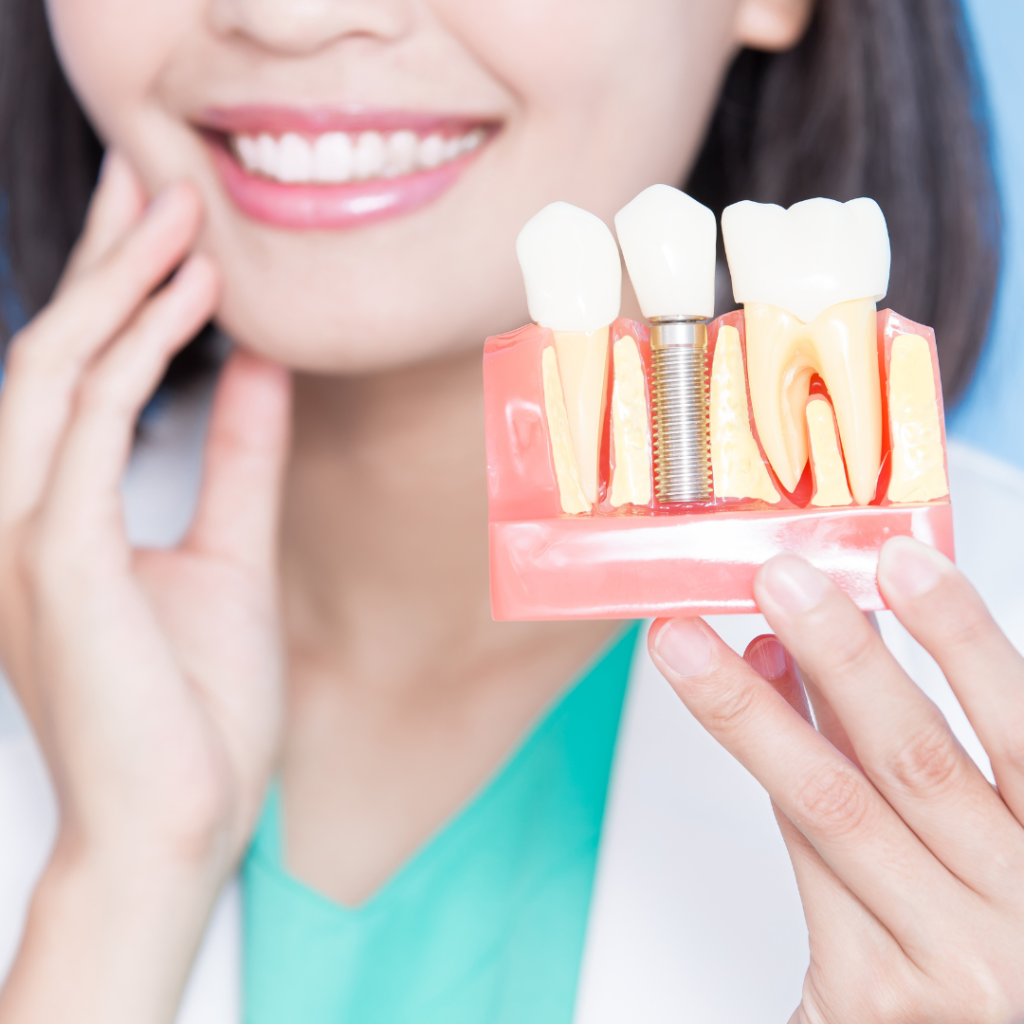Hyperesthesia is increased sensitivity of the teeth, which is accompanied by pain and discomfort in response to contact with hot, cold, sour or sweet foods. Most often it is provoked by thinning of the enamel or exposure of the dentin, due to which the nerve endings become vulnerable. According to research, 36-92% of the adult population with periodontal disease suffers from tooth sensitivity, but most do not pay attention to it until the discomfort becomes permanent.
If the problem is not eliminated, the intensity of unpleasant sensations will increase. An increased reaction to cold and hot may indicate initial caries, enamel erosion, recession (retraction) of the gums, inflammatory processes. Over time, microcracks on the tooth surface become a gateway for bacteria that provoke carious lesions and tissue destruction. Even if the pain passes quickly, this does not mean that the problem is not progressing.
Astra Dent specialists provide comprehensive treatment for tooth sensitivity in Warsaw — from enamel remineralization with fluoride and calcium preparations to sealing microcracks with biocompatible materials. Orthopedic solutions are also available if the problem is caused by tooth abrasion or an incorrect bite. Modern techniques allow us to eliminate hypersensitivity quickly and painlessly, restoring the natural protection of the teeth.
Why should you contact Astra Dent Warsaw with tooth sensitivity?
Increased tooth sensitivity is a signal of weakened enamel or hidden dental problems. Astra Dent doctors identify and eliminate the cause of hyperesthesia, and not just eliminate the symptoms. Patients choose a dental center in Warsaw due to the following advantages:
- Ukrainian-speaking doctors with experience in treating hypersensitivity. Astra Dent employs specialists with 25 years of experience in the field of therapeutic dentistry, periodontology and orthopedics. They specialize in diagnosing and treating hyperesthesia, selecting the optimal methods depending on the causes of unpleasant sensations. The consultation is conducted in Ukrainian, which guarantees comfortable communication and a detailed explanation of all stages of treatment.
- Modern techniques and materials for protecting enamel and gums. To eliminate tooth sensitivity to cold and hot, advanced techniques are used: enamel remineralization, microcrack sealing, laser therapy, periodontal treatment with closure of exposed roots.
- Comfortable treatment without pain. The procedures are performed with comfort for the patient. Application or injection anesthesia is used, and if necessary, computer anesthesia, which eliminates even minimal discomfort.
- Individual approach and recommendations. Astra Dent specialists select a treatment program taking into account the condition of the enamel, gums and general dental health of the patient. Recommendations are provided on the choice of toothpaste, brush and professional procedures.
After treatment, Astra Dent dentists monitor the condition of the enamel and, if necessary, offer additional strengthening procedures. Regular preventive examinations and professional hygiene help maintain dental health and prevent the problem from recurring.
Causes of tooth sensitivity
Teeth sensitivity occurs when the protective layer of enamel thins or exposes areas of dentin – a tissue that contains thousands of microscopic tubules leading to nerve endings. When they open, any stimuli – cold, hot, sour or sweet food – cause discomfort or even sharp pain. The causes of hyperesthesia can be different – from mechanical damage to age-related changes:
- Opening of dentinal tubules due to damage to enamel. Enamel is the hardest tissue in the body, but over time it is destroyed by mechanical, chemical or biological factors. If the protective layer thins or cracks, the dentinal tubules become vulnerable to temperature, chemical and mechanical stimuli. This can occur due to acid erosion (consumption of carbonated drinks, citrus fruits), mechanical damage or bruxism – grinding your teeth during sleep.
- Caries or initial tooth decay. Caries in the early stages is asymptomatic, but when the damage reaches the enamel and dentin border, sensitivity appears. This is the first signal that the tooth loses its protection and bacteria begin to destroy hard tissues. If the problem is not resolved, sensitivity will change to acute pain due to pulpitis or inflammatory processes inside the tooth.
- Receding gums and exposure of tooth roots. Gum recession is a process in which the gums move away from the tooth root. It is observed with periodontal disease, aggressive tooth brushing or hormonal changes. The roots of the teeth are not covered with enamel, therefore they are vulnerable to irritants.
- Excessively hard brushing or use of abrasive toothpastes. Brushing with a brush that is too hard or with toothpastes with a high content of abrasives wears away the enamel and leads to microcracks. Horizontal movements during brushing contribute to the gradual exposure of the tooth neck, which provokes hyperesthesia.
- The consequences of whitening or other dental procedures. Tooth sensitivity after whitening occurs due to the aggressive effect of drugs with a high concentration of hydrogen peroxide. If the enamel is weakened, even professional ultrasonic cleaning or AirFlow can cause discomfort.
- Age and natural abrasion of enamel. With age, the enamel becomes thinner and less mineralized, which increases its permeability to external stimuli. The process is natural, but it is accelerated by improper nutrition, acid erosion and habits that harm the teeth.
Unpleasant sensations when drinking are the first signal of a violation in the structure of the enamel or gums. Timely treatment at Astra Dent in Warsaw allows us to identify and eliminate the cause of hyperesthesia without surgical intervention.
Diagnosis and treatment of tooth sensitivity at Astra Dent Warsaw
Tooth hypersensitivity is a common symptom that can indicate more than 15 different dental diseases. Therefore, before treatment, it is important to accurately determine the cause of discomfort. Astra Dent doctors conduct a comprehensive diagnosis and select the optimal treatment method. Restoration of enamel, strengthening of gums or elimination of microdamages – the dental center uses technologies that allow you to get rid of hyperesthesia for a long time.
Examination and determination of the cause of sensitivity
The first stage is diagnostics, which involves a visual, functional and instrumental examination:
- Examination of teeth and gums. The doctor assesses the condition of the enamel, detects carious lesions, erosions, microcracks or areas of exposed dentin. The gum level is checked, since recession can cause increased sensitivity.
- Thermal sensitivity testing. The reaction of teeth to cold, hot and acidic stimuli is determined. For this purpose, they can use an air jet or special solutions that simulate contact with irritants.
- Occlusion (bite) assessment. It is analyzed how the teeth close, whether there is an uneven load that accelerates enamel abrasion or microcracks in the dentin.
- Diagnostic radiography (if necessary). If there is a suspicion of deep caries, inflammatory processes in the root or hidden cracks, a targeted X-ray is taken.
Based on the results of the diagnosis, the dentist determines the treatment tactics, within which enamel restoration, bite correction, and gum strengthening are possible.
Fluoridation or remineralization of enamel
If the cause of sensitivity is enamel thinning, fluoridation or remineralization is used. Astra Dent offers:
- fluorovarnish or fluorogel — creates a protective film, strengthens and reduces enamel permeability;
- sealing of microcracks — fills microdamages with a special composition that protects nerve endings;
- calcium and phosphorus-containing gels — saturate the enamel with minerals, preventing the destruction of the protective layer.
The procedures eliminate sensitivity, prevent further destruction of the enamel, complications in the form of caries, pulpitis and more serious dental diseases.
Protection of exposed roots and treatment of gums (if necessary)
If hyperesthesia is caused by receding gums, procedures are required that strengthen the periodontium and protect exposed roots:
- gel application with minerals — closes the dentinal tubules and reduces sensitivity;
- gingival surgery (with significant recession) — surgical restoration of the gums by transplanting the patient's own tissues (from the palate) or biomaterials.
Instrumental and surgical procedures prevent further enamel erosion, caries formation in weakened areas, and the development of periodontal diseases.
Elimination of caries or microcracks
When sensitivity is caused by caries, cracks or erosion, the doctor restores the affected areas. The choice of method depends on the degree of tooth damage and the localization of the defect:
- Microinvasive filling — suitable for early stages of caries and microscopic enamel defects. The doctor uses sealants and liquid composites that fill porous areas, strengthen and make the surface resistant to irritants.
- Restoration with composite materials — used for medium destruction of enamel and dentin. Nanocomposites or hybrid photopolymers are used, which restore the anatomical shape of the tooth without changing the bite. The materials have high strength, adapt to the natural shade of enamel and retain their structure for decades.
- Restoration with ceramic inlays — a technique for significant damage to the tooth, when a conventional filling does not provide sufficient strength. Ceramic inlays are made individually in the laboratory and repeat the relief of the tooth. They are resistant to wear, do not change color over time and have a strength close to natural enamel.
Thanks to biocompatible materials, restored teeth acquire natural aesthetics, retain resistance to temperature and mechanical stimuli.
Recommendations for home care and toothpaste selection
To maintain the effect of treatment, Astra Dent specialists provide individual recommendations:
- Toothpastes for sensitive teeth. They contain fluoride, calcium hydroxyapatite, arginine, which form a protective layer and reduce the reaction to cold and hot.
- A soft brush with the correct brushing method. Excessive pressure and hard bristles damage teeth. A brush with rounded fibers and a soft circular motion technique are recommended.
- Limit acidic drinks and foods. Carbonated drinks, citrus juices, vinegar and energy drinks provoke enamel demineralization. If you cannot avoid them, it is better to use a straw to minimize contact with the teeth.
- Do not brush your teeth immediately after eating acidic foods. The acidic environment softens the enamel, and brushing your teeth immediately after can accelerate its erosion. Optimally, rinse your mouth with water and brush your teeth after 30-40 minutes.
- Professional hygiene twice a year. Removing plaque and tartar prevents gum recession and keeps enamel healthy.
Astra Dent Warsaw specialists will help not only eliminate sensitivity, but also make your teeth stronger and less susceptible to external stimuli.
How to make an appointment?
Tooth sensitivity does not go away on its own – it only gets worse over time. Astra Dent in Warsaw will help you solve the problem without pain and discomfort. One visit is enough to determine the cause of hyperesthesia and find an effective solution.
You can choose a convenient way to make an appointment right now:
- Send a request to info@astradent.pl;
- Fill out the form on the astradent.pl website;
- Call +48 533 599 552.
A prior appointment guarantees a convenient appointment time without waiting in line. The doctor will pay enough attention to the diagnosis, explain each stage and select the optimal treatment method. Without haste, discomfort and unpleasant sensations – at Astra Dent everything happens on the patients' terms.

Last update:
10 October 2025, 17:25























